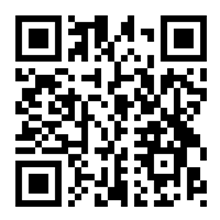 Sendtime 2020-02-09
Sendtime 2020-02-09 BY
BY  Read 1363
Read 1363Who among us doesn’t have memories of visiting the library during our youth? Whether researching a paper for Intro to Biology or escaping into a good book on a hot summer day, most of us remember a library as part of our formative years. Indeed, you could say libraries are a common denominator among us.
That’s why so many people find the sweeping changes that libraries have undergone in recent years so remarkable. No longer stern institutions of enforced silence, libraries are bustling centers of community activity, filled with all kinds of opportunities for children and adults to connect and learn. At the same time, information technology has dramatically impacted library operations.
FEIG ELECTRONICS is pleased to be a part of this ongoing transformation. For more than 40 years, FEIG has manufactured radio frequency identification (RFID) readers and antennas that are used in library operations. And as market leader and global supplier of these devices, our products are found in thousands of libraries and serve as the backbone of the library IT systems that are used for checking items in and out, tracking inventory and shelving.
The advantages of RFID are significant. While boosting the speed and efficiency of library operations, RFID enriches service and empowers customers to do more for themselves. It’s estimated that more 30 million library items worldwide now contain RFID tags.
Attendees at the Public Library Association Conference upcoming meeting, February 25 -29 in Nashville will have the opportunity to learn more about RFID technology. Klaus Schoeke, FEIG Electronics’ National Sales Director, will be on hand to meet attendees and answer questions at Envisionware’s booth #1101.
In 1999, the library at Rockefeller University in New York City became the first academic institution to use RFID while the Farmington Community Library in Michigan became the first public library to do so. In 2000, several libraries around the world announced their intention to integrate RFID technology into their library systems, further pioneering its use in contemporary library functions.
Notably, FEIG ELECTRONICS was the first to comply with the International Standards Organization’s (ISO) guidelines for performance testing of RFID gates in library applications. It was the first such standard and was published at the end of 2015.
Today, FEIG remains the only company to comply to this ISO standard. This is important because the quality of our products is especially important in the nonprofit world of libraries, where tax dollars form the basis of funding.
A bit of technical background: The ISO standards address the techniques and methods that manufacturers use to test the performance of the High Frequency RFID gates in libraries. The gates consist of antennas positioned at entrances, exits and in corridors within buildings to track the movement of books, CDs, DVDs or other media.
Two organizations oversee the standards, the ISO and the International Electrotechnical Commission (IEC). Together they form a specialized system for worldwide standardization. National bodies that are members of ISO or IEC participate in the development of standards through committees that address particular fields of technical activity.
At FEIG ELECTRONICS, we see our role as helping to empower libraries so they can fill that mission and build for the future.
Today libraries are using the latest technology to engage patrons, improve service and help staffers do their jobs. Effective use of resources is a critical part of their mission. At FEIG ELECTRONICS, we see our role as helping to empower libraries so they can fill that mission and build for the future.
FEIG ELECTRONICS, with over 20 years of experience in RFID library access control, in partnership with Envisionware, with more than 10,000 library installations around the world, offers state-of-the-art solutions that deliver substantial advantages:
Over the many years of FEIG Electronics’ worldwide expansion, Envisonware, a leading provider of self-service and library-efficiency solutions based in Duluth, Georgia, has become a key U.S. partner. Envisionware provides automated materials handling technology to libraries of all sizes throughout the U.S. Visit Envisionware booth #1101 at PLA2020Conference.


Tel:010-84048366
Email:gracewitark@gmail.com 
Add:shenzhou-great wall building, no.2 yard, shimen middle road, chaoyang district, Beijing
Scan watching us